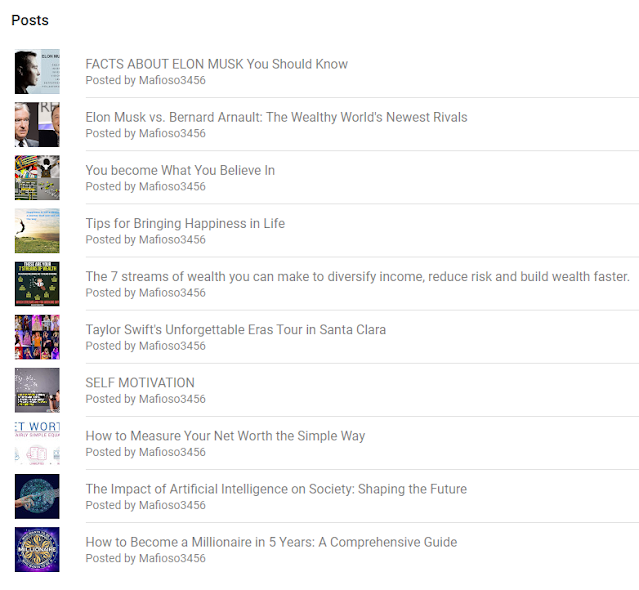Balancing Happiness and Success: A Guide to Achieving Both
How can one balance happiness and success, and achieve both without sacrificing one for the other?
Happiness and success are not mutually exclusive; they can coexist and complement each other. Happiness is not a destination, but a state of mind that can be cultivated and maintained regardless of external circumstances. Success is not a fixed standard, but a subjective measure that can be defined and redefined by oneself according to one’s values and aspirations.

Here are some tips on how to balance happiness and success in life:
- Define your own success. Do not let society, media, or others dictate what success means to you. Success is not a one-size-fits-all concept; it is different for everyone. What matters is that you pursue what is meaningful and important to you, and that you align your actions with your purpose and vision. Set your own goals and standards, and celebrate your achievements along the way.
- Pursue your passion. Do what you love and love what you do. Passion is the fuel that drives you to excel and overcome challenges. Passion also brings joy and fulfillment to your work and life. Find your passion and follow it with enthusiasm and dedication. If you are not passionate about your current work or situation, seek ways to change it or find something else that sparks your interest and creativity.
- Practice gratitude. Be thankful for what you have and what you have accomplished. Gratitude helps you to appreciate the positive aspects of your life and to recognize the opportunities and resources that are available to you. Gratitude also helps you to cope with stress and adversity by shifting your focus from what is lacking or wrong to what is abundant and right. Express your gratitude daily by writing a journal, saying thank you, or sharing your appreciation with others.
- Cultivate positive relationships. Surround yourself with people who support you, inspire you, and challenge you to grow. Positive relationships can enhance your happiness and success by providing emotional support, feedback, collaboration, and motivation. Positive relationships can also enrich your life by adding fun, laughter, and meaning. Nurture your relationships by spending quality time with them, communicating effectively, showing respect, and giving back.
- Take care of yourself. Your happiness and success depend on your physical, mental, and emotional well-being. You cannot perform at your best or enjoy life if you are unhealthy or unhappy. Therefore, you need to take care of yourself by eating well, exercising regularly, sleeping enough, managing stress, and engaging in hobbies or activities that relax you and make you happy. You also need to take care of yourself by setting boundaries, saying no when necessary, asking for help when needed, and treating yourself with kindness and compassion.
- Balance work and life. Work is an important part of life, but it is not the only part. You also need time for yourself, your family, your friends, and your community. You need time to rest, recharge, learn, grow, and have fun. Balance work and life by prioritizing your tasks, delegating or outsourcing when possible, automating or simplifying when appropriate, and scheduling or blocking time for different aspects of your life. Balance work and life by being flexible, adaptable, and realistic about what you can do and achieve.
Happiness and success are not opposites; they are partners. You can balance happiness and success by defining your own success, pursuing your passion, practicing gratitude, cultivating positive relationships, taking care of yourself, and balancing work and life. By doing so, you can achieve both happiness and success in life, and enjoy the best of both worlds.
For further reading:
Define your own success: Blaschka, A. (2020, February 18). How to define success for yourself, no matter what the world says. Forbes. https://www.forbes.com/sites/amyblaschka/2020/02/18/how-to-define-success-for-yourself-no-matter-what-the-world-says/?sh=3c9a7f5a6b4f
Pursue your passion: Weinberg, G. (2011, August 15). How to find your passion. Psychology Today. https://www.psychologytoday.com/us/blog/the-power-prime/201108/how-find-your-passion
Practice gratitude: Pascoe, M.C., & Hetrick, S.E. (2020). The effects of gratitude interventions on neural markers of well-being: A systematic review. Neuroscience & Biobehavioral Reviews, 118, 24-36. https://doi.org/10.1016/j.neubiorev.2020.07.032
Cultivate positive relationships: Cherry, K. (2020, November 17). How to build and maintain positive relationships. Verywell Mind. https://www.verywellmind.com/how-to-build-and-maintain-positive-relationships-3144953
Take care of yourself: Smith, M., Robinson, L., & Segal, J. (2020, October). Self-care basics. HelpGuide.org. https://www.helpguide.org/articles/mental-health/self-care-basics.htm
Balance work and life: Mind Tools Content Team. (n.d.). Achieving a healthy work-life balance: How to reclaim control over your life. Mind Tools. Retrieved December 20, 2020, from https://www.mindtools.com/pages/article/work-life-balance.htm




Comments
Post a Comment